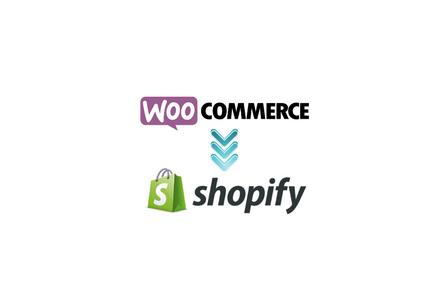WordPress, a versatile and widely-used content management system (CMS), is not just for blogs and informational websites. Over the years, it has evolved into a powerful platform for eCommerce. With the right combination of plugins, themes, and strategies, WordPress can be an excellent choice for launching and managing an online store. In this comprehensive guide, we will explore why WordPress is a good choice for eCommerce, the key elements of a successful WordPress eCommerce site, and best practices for building and managing your online store.
Contents
- 1 Why WordPress for eCommerce?
- 2 Key Elements of a WordPress eCommerce Site
- 2.1 Hosting and Domain Name
- 2.2 eCommerce Plugin
- 2.3 Theme
- 2.4 Payment Gateways
- 2.5 Product Listings
- 2.6 Shopping Cart and Checkout
- 2.7 Security
- 2.8 SEO Optimization
- 2.9 Analytics and Tracking
- 2.10 Mobile Responsiveness
- 2.11 Inventory Management
- 2.12 Shipping and Tax Calculations
- 2.13 Customer Support and Communication
- 3 Best Practices for Building and Managing Your WordPress eCommerce Site
- 3.1 Invest in Quality Hosting
- 3.2 Regularly Update Plugins and Themes
- 3.3 Prioritize Security
- 3.4 Optimize Site Speed
- 3.5 Conduct Usability Testing
- 3.6 Provide Clear Product Information
- 3.7 Offer Multiple Payment Options
- 3.8 Implement a Returns and Refunds Policy
- 3.9 Secure Customer Data
- 3.10 Regularly Back Up Your Site
- 3.11 Monitor Site Performance
- 3.12 Stay Compliant with Regulations
- 3.13 Leverage Marketing and SEO
- 3.14 Continuously Improve
- 4 Conclusion
Why WordPress for eCommerce?
WordPress is known for its flexibility and extensibility. It allows you to create a highly customized eCommerce site tailored to your specific needs. You can choose from a vast library of themes and plugins to design and add functionalities that align with your brand and products.
Cost-Effective Solution
WordPress itself is open-source and free to use. While there may be costs associated with premium themes and plugins, it can still be a cost-effective solution compared to custom-built eCommerce platforms.
Large Plugin Ecosystem
WordPress boasts a vast ecosystem of plugins, including popular eCommerce plugins like WooCommerce. These plugins provide features like product management, shopping cart functionality, payment gateways, and more. You can extend your store’s capabilities without writing custom code.
SEO-Friendly
WordPress is inherently SEO-friendly, making it easier for your eCommerce site to rank well in search engines. Additionally, you can use SEO plugins to optimize product pages, meta tags, and site structure.
User-Friendly Interface
The WordPress admin dashboard is user-friendly and easy to navigate. This makes it accessible for non-technical users to manage product listings, inventory, orders, and other aspects of the store.
Community and Support
WordPress has a thriving community of developers, designers, and users. You can find solutions to common problems, tutorials, and support through forums, blogs, and official documentation.
Scalability
WordPress can scale with your business as it grows. You can start with a small product catalog and expand to a large eCommerce site without switching platforms.
Read: Migrating From Shopify To WooCommerce
Key Elements of a WordPress eCommerce Site
To build a successful WordPress eCommerce site, you need to consider several key elements:
Hosting and Domain Name
Choose a reliable hosting provider that offers scalability, performance, and security. Register a domain name that reflects your brand and is easy to remember.
eCommerce Plugin
Select an eCommerce plugin that suits your needs. WooCommerce is the most popular choice, but there are others like Easy Digital Downloads for digital products or WP eCommerce.
Theme
Choose a responsive and eCommerce-focused theme. Premium themes often offer advanced features and customization options. Ensure the theme is compatible with your chosen eCommerce plugin.
Related: Best Free WooCommerce Templates For Your Online Store
Payment Gateways
Integrate payment gateways to process transactions securely. WooCommerce supports various payment options, including PayPal, Stripe, and more.
Product Listings
Create detailed and attractive product listings. Include high-quality images, product descriptions, prices, and availability status. Organize products into categories and tags for easy navigation.
Shopping Cart and Checkout
Set up a user-friendly shopping cart and checkout process. Ensure that customers can easily add and remove items from the cart, view order summaries, and complete their purchases.
Security
Implement security measures to protect customer data, transactions, and your website from threats. Use SSL certificates, regularly update plugins and themes, and follow security best practices.
SEO Optimization
Optimize product pages and content for search engines. Use SEO plugins to manage metadata, create XML sitemaps, and improve your site’s visibility in search results.
Analytics and Tracking
Set up analytics tools like Google Analytics to track visitor behavior, conversions, and sales. Analyze data to make informed decisions and optimize your site’s performance.
Mobile Responsiveness
Ensure that your eCommerce site is mobile-responsive. Many customers shop on mobile devices, so a mobile-friendly design is essential for a positive user experience.
Inventory Management
Implement an inventory management system to track stock levels, receive notifications for low stock, and manage product availability.
Shipping and Tax Calculations
Configure shipping options and tax calculations based on your business’s location and customer preferences. Offer various shipping methods and rates.
Customer Support and Communication
Provide multiple channels for customer support, such as live chat, email, and phone support. Keep customers informed about their orders through order status notifications and email updates.
Best Practices for Building and Managing Your WordPress eCommerce Site
Building and managing a WordPress eCommerce site involves ongoing effort and attention to detail. Here are best practices to help you succeed:
Invest in Quality Hosting
Choose a reputable hosting provider that can handle your eCommerce site’s traffic and ensure reliability and security.
Regularly Update Plugins and Themes
Keep your WordPress core, plugins, and themes up to date to patch security vulnerabilities and ensure compatibility.
Prioritize Security
Implement security measures such as strong passwords, two-factor authentication, firewalls, and security plugins to protect your site and customer data.
Optimize Site Speed
A fast-loading website is crucial for eCommerce success. Use caching plugins, optimize images, and minimize unnecessary code to improve site speed.
Conduct Usability Testing
Test your site’s usability from a user’s perspective. Ensure that the shopping process is intuitive, and address any usability issues.
Provide Clear Product Information
Write detailed product descriptions, include high-resolution images, and provide accurate pricing and availability information.
Offer Multiple Payment Options
Diversify payment options to accommodate different customer preferences, including credit cards, digital wallets, and more.
Implement a Returns and Refunds Policy
Clearly communicate your returns and refunds policy to customers. Make it easy for them to initiate returns and track the progress.
Secure Customer Data
Protect customer data by using encryption, secure payment gateways, and compliance with data protection regulations like GDPR.
Regularly Back Up Your Site
Perform regular backups of your website and store data to prevent data loss in case of unforeseen events.
Monitor Site Performance
Continuously monitor your site’s performance using tools like Google Analytics and performance testing tools. Address any issues promptly.
Stay Compliant with Regulations
Ensure that your eCommerce site complies with legal and regulatory requirements related to online selling, taxes, and consumer rights.
Provide Excellent Customer Support
Offer responsive customer support to address inquiries, resolve issues, and provide assistance throughout the shopping process.
Leverage Marketing and SEO
Promote your eCommerce site through digital marketing channels, including social media, email marketing, and paid advertising. Optimize your site for search engines to attract organic traffic.
Continuously Improve
Regularly assess your site’s performance and gather feedback from customers. Use this information to make improvements and enhancements.
Conclusion
WordPress has evolved into a versatile platform for eCommerce, offering flexibility, customization, and a rich ecosystem of plugins and themes. By carefully planning and implementing the key elements of a WordPress eCommerce site and following best practices, you can create a successful online store that attracts customers, drives sales, and grows your business. Whether you’re starting a new eCommerce venture or transitioning your existing store to WordPress, it offers a powerful and cost-effective solution for your online retail needs.




